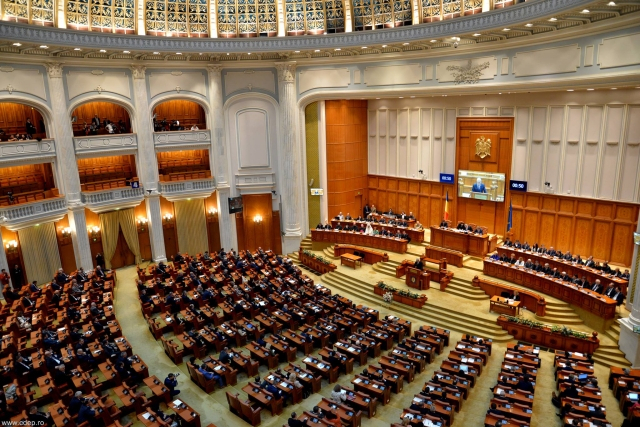Law on the extended confiscation of illegally acquired assets
Romanian Chamber of Deputies endorses bill on extended confiscation of illegally acquired assets

Leyla Cheamil, 14.10.2020, 13:50
The Romanian Chamber of Deputies, which is the decision-making body in this matter, has endorsed the bill regarding the extended confiscation of illegally acquired assets. The law provides for extended confiscation of property acquired by a convicted person over the period of five years prior to and, if necessary, after the crimes were committed, until the court notification is issued.
The bill focuses on regulating the modification and completion of normative acts in the criminal field, with a view to transposing some European provisions into the national legislation. Therefore, assets owned by persons who got a final sentence of imprisonment for a period of four years or more, and which have been transferred to third parties, may be confiscated to cover damage to public or private property. Former Justice Minister and non-affiliated MP Ana Birchall says the measure will be applied to a much larger number of crimes, including abuse of office.
Ana Birchall: By adopting this bill, extended confiscation will also be applied to malfeasance in office. Another important provision concerns the modification of the requirements necessary for the application of extended confiscation. Thus, the restrictions provided in the current regulation are eliminated, so that the court will be able to substantiate its conviction that the goods come from criminal activities based on any circumstances.
The bill also provides that, in the case of property that may be subject to special confiscation or extended confiscation, the prosecutor must take precautionary measures to avoid concealment, destruction, alienation or evasion of the pursuit of such property. Also, the judicial body that ordered the extension of the criminal investigation or the change of the legal classification is obliged to inform the suspect about the new facts for which the extension was ordered or about the change of the legal classification.
At the same time, the prosecutor orders the suspension of the criminal investigation only if, taking into account all the circumstances of the case, they consider that the suspect or defendant could not be heard at their current location or by videoconference or that their hearing would infringe upon their rights or affect the proper conduct of the criminal investigation.If the suspension of the trial is not ordered, the hearing of the suspect or defendant at the place where they are or by videoconference can take place only in the presence of the lawyer. On the other hand, the National Agency for the Management of Frozen Assets shall notify the appointed judge of any impediment or delay occurring during the enforcement of a special or extended confiscation measure. (M. Ignatescu)






























